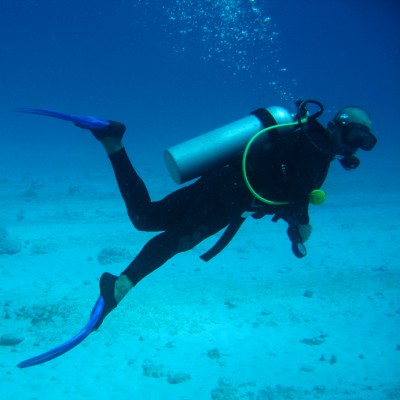
People can gain SCUBA certification through classes that teach the basics and techniques that go into learning this form of underwater diving.
Getting your SCUBA diving certification is quite obviously an important part of becoming a qualified diver. When taking classes, you will most likely be provided with all the equipment you need: mask, fins, snorkel, buoyancy control device, cylinder, regulator, wet suit, submersible pressure gauge, additional air source, dive computer, compass, and whistle. Other accessories can be added based on your preferences after you gain experience. Another component that will help determine the gear you either rent or purchase is the type of water you will be diving in.
Certification is offered at many locations, with the first step of the process focusing on improving your SCUBA knowledge base. Before even getting in the water during one of your classes, you will learn terminology, safety measures that must be taken, and then a quiz will test what you have remembered and provide more information on the areas you need assistance with. If you get into a problematic situation while diving, not understanding key concepts of the water sport can put you in danger.
The next step is to gain experience in a confined space of water so you are able to get adjusted to breathing. This is most commonly done in a pool with a small class of people, but can also be done in shallow, calm waters, which some certification instructors prefer. This step is to get divers used to their equipment and how to move in the water with it, while at the same time learning to breathe. For most people, breathing is the most troublesome part of the whole learning process. The more time spent in a practice pool, the more ready you will be when it comes to SCUBA diving in open waters at greater depths.
When it comes to the real deal, try not to stress, and take time to remember what you learned in your certification class. How challenging of a dive someone wants is completely up to them, but be careful not to put yourself in a situation you’re not comfortable with. Often there are places that offer a variety of locations, so you can work yourself up to deeper dives with each one, without having to travel far. After becoming more advanced, options are endless as far as places to SCUBA dive, but include wreck diving, cave diving, ice diving, and deep diving.
Certification can be granted in as few as several days, and there are many indoor pool locations that offer lessons locally, saving you from having to travel to a large body of water if you’re far from one.
Image from Soljaguar on the Wikimedia Commons
 Your Privacy Choices
Your Privacy Choices
 The
The